Nigeria is a country of diverse cultures, and one of the fascinating tribes that call this country home is the Hausa people. With a rich history and a unique way of life, the Hausa tribe is a treasure trove of knowledge and tradition waiting to be explored.
From their cuisine, clothing, and music to their festivals, there is so much to discover about the Hausa people and their way of life.
Join us as we unpack the culture of the Hausa tribe in Nigeria. As such, we’ll be going through one of the most vibrant and captivating cultures in Africa.
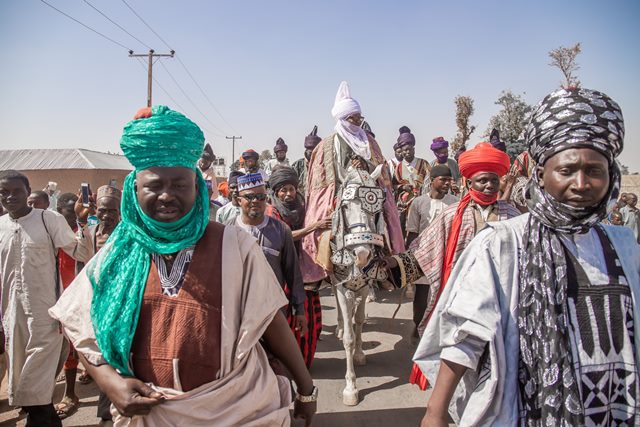
History of the Hausa Tribe
The Hausa people are one of the largest ethnic groups in Nigeria, with a population estimated at around 30 million. They are predominantly found in the northern part of the country, with significant populations also present in neighboring West African countries such as Niger, Cameroon, and Ghana.
The Hausas have a rich history spanning several centuries. We’ll provide an overview of their origins, migration patterns, and significant events that have shaped their history.
Origins and Migration of the Hausa People
The ancestral roots of the Hausa people are uncertain, with various theories and hypotheses proposed over time.
For instance, one prominent theory suggests that they are descendants of the ancient Assyrian empire in Iraq. Another theory links them to the Nubian civilization in ancient Egypt.
Despite these speculations, it is widely accepted that the Hausa people migrated to their present location in northern Nigeria and surrounding areas during the 7th century AD.
This migration was motivated by various factors. For example, the need for new agricultural and grazing land and access to trade and commerce opportunities.
Pre-Colonial Era
Before the arrival of European colonizers in the 19th century, the Hausa people had established several independent city-states. These states were governed by powerful kings or emirs.
Moreover, they were renowned for their vibrant trade and commerce, serving as a crossroads for exchanging goods and ideas. The influence of Islamic culture also took root during the pre-colonial era. Its adoption led to the establishment of various Islamic schools and centers of learning that propagated its teachings and customs throughout the region.
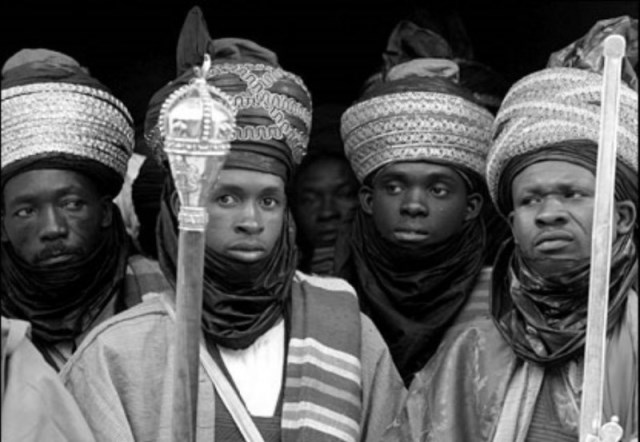
Read: How Timbuktu Thrived During Islam’s Golden Age
Colonial Era
The arrival of European colonizers in the 19th century brought significant changes to the Hausa people’s history. The British established a protectorate over northern Nigeria in 1901. As a result, this marked the beginning of a new era that forced the Hausa people to adapt to a new political and economic system imposed by the colonial power.
Under colonial rule, the Hausa people suffered from various exploitation and oppression. This included forced labor and high taxation, resulting in poverty and economic difficulties.
Consequently, resistance movements emerged among the Hausa people to challenge British colonial rule.
Post-Colonial Era
With the end of British colonial rule in 1960, the Hausa people gained independence and a more significant role in shaping Nigeria’s political and economic landscape. This was because many northern political elites were of Hausa ethnicity.
However, this period also brought significant challenges, including the emergence of religious extremism and terrorism. Unfortunately, this led to violent conflicts between religious and ethnic groups and the destabilization of the country.
We Design & Develop Websites, Android & iOS Apps
Looking to transform your digital presence? We specialize in creating stunning websites and powerful mobile apps for Android and iOS. Let us bring your vision to life with innovative, tailored solutions!
Get Started TodayThe Nigerian government has taken measures to tackle these challenges, such as establishing a counter-terrorism unit and implementing development programs.
Nonetheless, the northern region remains one of Nigeria’s most economically disadvantaged areas, marked by high levels of poverty and underdevelopment.
Hausa Language and Literature
The Hausa language is a prominent West African language spoken by over 60 million people worldwide, with most speakers residing in Nigeria.
Hausa is also a member of the Chadic language family, which is part of the Afro-Asiatic language family. And it is one of the official languages of Nigeria, along with English and Yoruba.
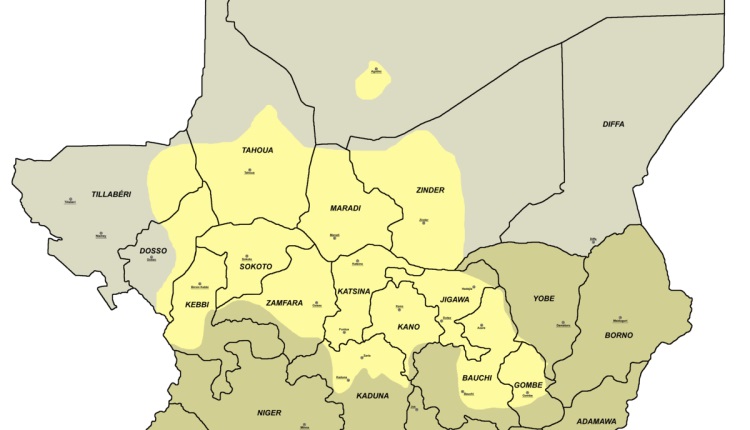
Hausa Language
The Hausa language is tonal, with three tones: high, low, and falling. It is written using the Latin alphabet with additional diacritic marks to denote the different tones.
Hausa is a widely spoken language in West Africa, with significant populations of Hausa speakers also present in neighboring countries such as Niger, Chad, Cameroon, and Ghana.
In addition, the Hausa language is renowned for its flexibility and adaptability. Its speakers often incorporate words and expressions from other languages to create new and unique dialects. This has led to several regional variants of the language, each with its distinct vocabulary, grammar, and pronunciation.
Hausa Literature
Hausa literature forms a huge part of the tribe. It has a rich and diverse history that spans several centuries. Interestingly, the earliest known examples of Hausa literature date back to the 14th century. Hausa literature encompasses a wide range of genres, including poetry, prose, drama, and music, and various cultural and historical influences have shaped it.
One of the most significant influences on Hausa literature is Islamic culture, which was introduced to the region around the 11th century. Islamic scholars and poets played a significant role in developing Hausa literature. Many of the earliest examples of Hausa poetry and prose were written in Arabic script and drawn heavily from Islamic themes and motifs.
Over time, Hausa’s literature evolved to incorporate a broader range of themes and genres. Many works address issues such as love, politics, and social justice.
Hausa literature also became more accessible to the general public with the emergence of famous poets and performers who entertained audiences with their songs and stories.
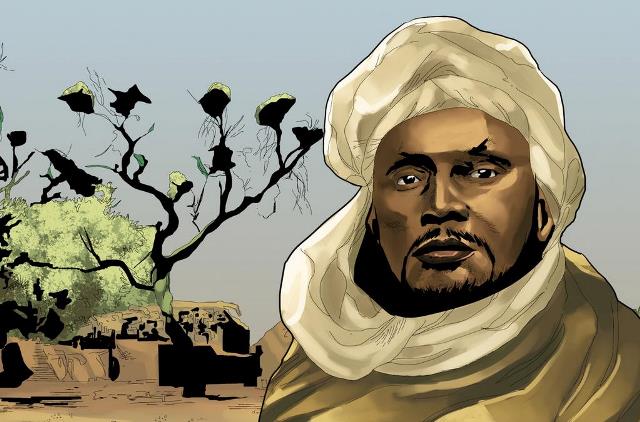
Usman dan Fodio is one of the most prominent figures in Hausa literature. He lived in the 18th and 19th centuries and is widely regarded as one of the most influential figures in Nigerian history. Dan Fodio’s poetry and writings continue to inspire generations of Hausa speakers.
Furthermore, there has been a renewed interest in Hausa literature in recent years. Several initiatives that promote and preserve the language and its literary traditions have been established. This includes establishing literary festivals, writing workshops, and publishing houses specializing in Hausa literature.
Hausa Tribe Clothing and Fashion
Hausa clothing and fashion are an integral part of the tribe. The traditional clothing of the Hausa tribe is known for its vibrant colors, intricate embroidery, and unique designs. A variety of cultural and historical factors has influenced it over the years.
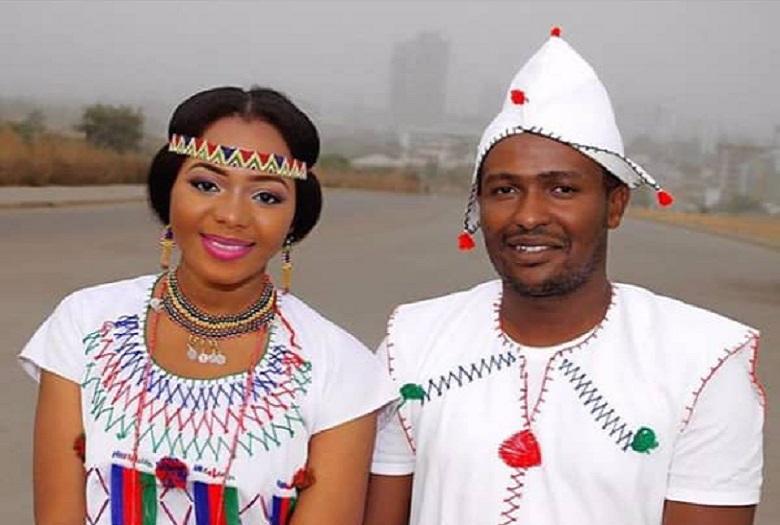
Hausa Clothing
The traditional clothing of the Hausa people is made from different materials, including cotton, silk, and wool. Men typically wear long, flowing robes known as babban riga, which are often embroidered with intricate designs and patterns.
On the other hand, women wear a combination of a blouse and a wrap-around skirt known as a wrapper or lappa. This is often adorned with colorful patterns and designs.
In addition to traditional clothing, Hausa people also wear a range of accessories, including hats, scarves, and jewelry. Men often wear a cap called a fila, while women may wear a hijab or headscarf.
Jewelry is also an essential part of Hausa fashion, with both men and women wearing bracelets, necklaces, and earrings.
We Design & Develop Websites, Android & iOS Apps
Looking to transform your digital presence? We specialize in creating stunning websites and powerful mobile apps for Android and iOS. Let us bring your vision to life with innovative, tailored solutions!
Get Started TodayHausa Fashion
Hausa fashion has evolved as designers and fashion houses incorporate traditional designs into their collections. The trend has helped to increase the popularity of Hausa fashion, with Hausa-inspired designs appearing on runways worldwide.
The “Hausa dress” is one of the most notable examples of this trend, featuring bright colors, embroidery, and beading with traditional motifs. Additionally, Hausa fashion has been influenced by other African and global fashion trends. This has resulted in a unique hybrid style that blends traditional Hausa designs with modern fashion trends.
Hausa Music and Dance
Hausa music and dance are an integral part of the tribe and heritage of the Hausas. The music is characterized by its use of different instruments, including drums, flutes, trumpets, and lutes. Two popular instruments used in traditional Hausa music are kuka (large double-headed drum) and kakaki (long trumpet).
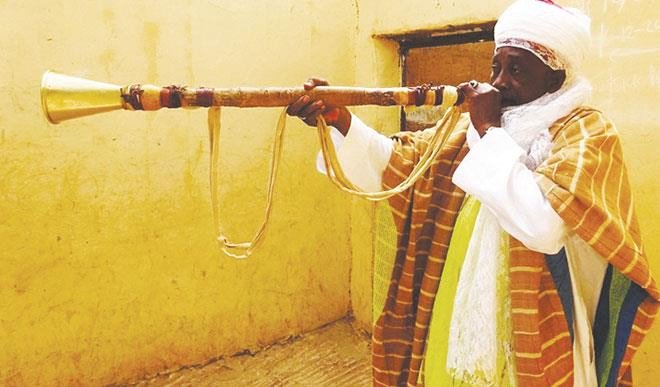
In addition, Hausa music tells stories of everyday life, love, and religious themes. There are different types of Hausa music, including praise songs, lullabies, wedding songs, and hymns.
The dances often accompany live music during special occasions. For instance, weddings or festivals and involve energetic movements like jumping, spinning, and stomping.
The shanwa or dan maraya is a popular dance in Hausa culture. It features fast, rhythmic movements and is usually accompanied by drums and trumpets.
Modern Hausa music has also emerged, and it includes blending traditional elements with hip-hop, reggae and other genres of popular music. This has become increasingly popular among young people in West Africa.
Hausa Festivals and Celebrations
Besides the electrifying music, Hausa culture boasts colorful festivals and celebrations reflecting their tribe, traditions, and customs. These events provide a platform for the Hausa people to showcase their rich cultural diversity and heritage.
Among the popular festivals in Hausa culture are the Eid al-Fitr festival, which marks the end of Ramadan, and the Durbar festival, characterized by colorful parades of horsemen, musicians, and dancers.
Other festivals include the Gani festival, which celebrates the beginning of the farming season, and the Hawan Daushe festival, which marks the end of the farming season.
Hausa culture also includes elaborate wedding ceremonies, naming ceremonies for newborns, and funeral ceremonies for the deceased.
Cuisine and Food Culture
Finally, Hausa cuisine consists of a diverse and aromatic culinary tradition incorporating spices, grains, and vegetables. For example, popular dishes include tuwo, a starchy porridge served with soup or stew, and miyan kuka, a soup made from baobab leaves.
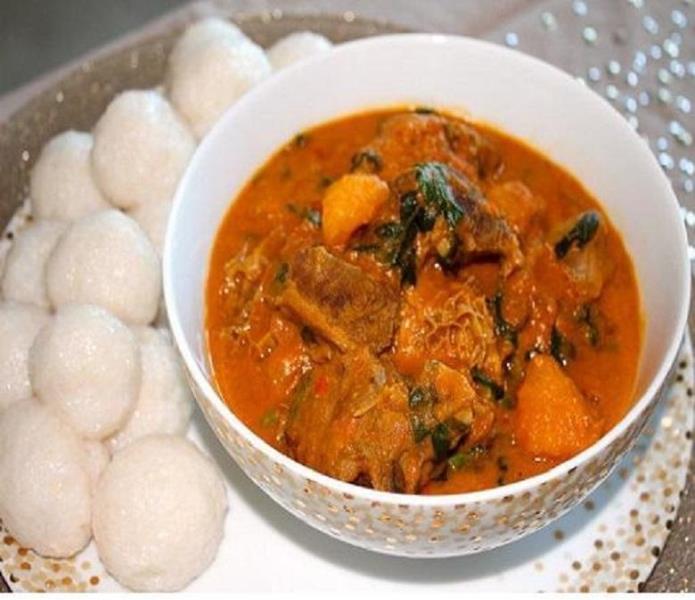
Hausa cuisine also features a range of snacks and street foods, including suya and masa. Traditional dishes are often served during specific festivals and ceremonies, such as fura da nono and tsire during Eid al-Fitr. Indeed, food culture is an integral part of the Hausa tribe, reflecting its history and customs.
Before you go…
Hey, thank you for reading this blog to the end. I hope it was helpful. Let me tell you a little bit about Nicholas Idoko Technologies. We help businesses and companies build an online presence by developing web, mobile, desktop, and blockchain applications.
We also help aspiring software developers and programmers learn the skills they need to have a successful career. Take your first step to becoming a programming boss by joining our Learn To Code academy today!
Put Your Tech Company on the Map!
Get featured on Nicholas Idoko’s Blog for just $200. Showcase your business, boost credibility, and reach a growing audience eager for tech solutions.
Publish Now










